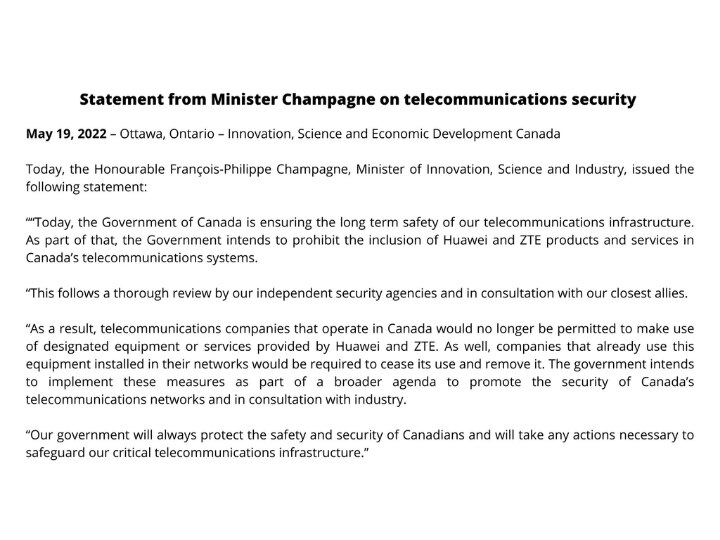Canada Bans Huawei From Its Domestic Telecommunications Networks Citing National Security
In a latest move by a US ally, now, Canada has decided to ban Chinese tech giant Huawei from providing 5G services in the country.

New Delhi: In a latest move by a US ally, now, Canada has decided to ban Chinese tech giant Huawei from providing 5G services in the country, citing national security. Canada's Innovation, Science and Industry Minister Francois-Philippe Champagne said that the company poses a threat to the country's national security. China's ZTE Corp. will also be prohibited from providing services in Canada.
"Our government will always ensure the long-term safety and security of Canadians by taking all actions necessary to safeguard our critical telecommunications infrastructure. My statement on our announcement regarding Huawei and ZTE in Canada," Canada's Industry Minister wrote on Twitter and also posted an official statement alongside.

"Today, the Government of Canada is ensuring the long term safety of our telecommunications infrastructure. As part of that, the Government intends to prohibit the inclusion of Huawei and ZTE products and services in Canada's telecommunications systems. This follows a thorough review by our independent agencies and in consultation with our closest allies," read the statement posted alongside the tweet.
Also read: Apple's New Ad Campaign Underlines How Data Brokers Operate And Privacy Control For Users
The US had been urging its ally Canada along with other allies to ban Huawei from their domestic telecommunications networks. The US and many of its allies have expressed strong concern in recent years about Huawei’s global expansion amid worries that the company has ties to China’s military and facilitates Beijing’s cyber espionage around the world, said a report published in Financial Times.
Also read: Apple Watch 6, Fitbit Sense And More Show Poor Performance While Tracking Calories
It should be noted that Chinese tech giant Huawei long played a key role in Canadian wireless networks. It won its first major North American project from BCE and Telus in 2008 -- a pivotal contract that helped cement the company's reputation as a global player that could compete on quality, according to a report by news agency Bloomberg.






































